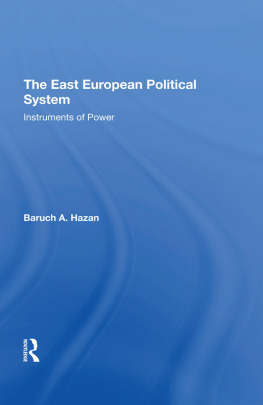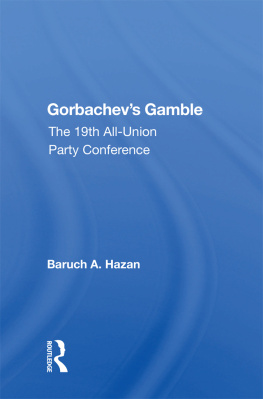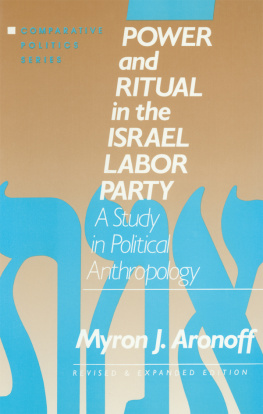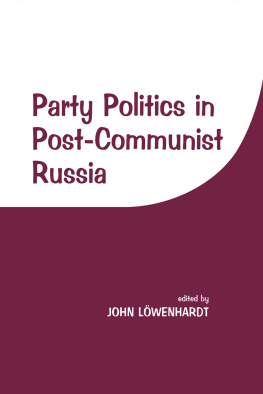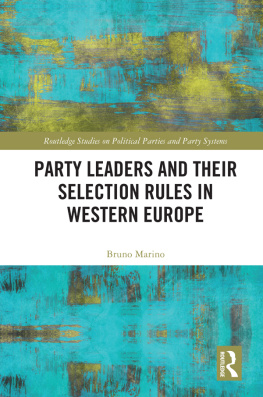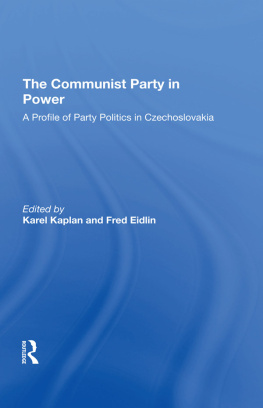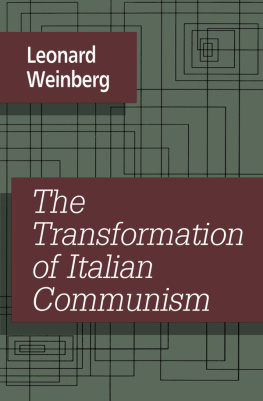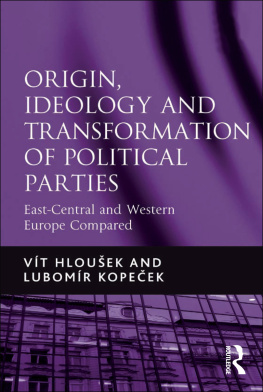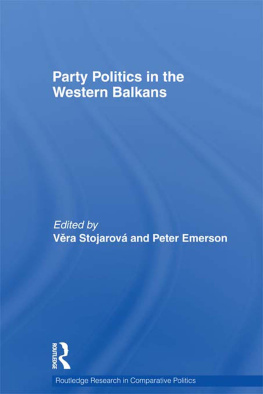The East European Political System
Westview Special Studies
The concept of Westview Special Studies is a response to the continuing crisis in academic and informational publishing. Library budgets for books have been severely curtailed. Ever larger portions of general library budgets are being diverted from the purchase of books and used for data banks, computers, micromedia, and other methods of information retrieval. Interlibrary loan structures further reduce the edition sizes required to satisfy the needs of the scholarly community. Economic pressures on university presses and the few private scholarly publishing companies have greatly limited the capacity of the industry to properly serve the academie and research communities. As a result, many manuscripts dealing with important subjects, often representing the highest level of scholarship, are no longer economically viable publishing projects--or, if accepted for publication, are typically subject to lead times ranging from one to three years.
Westview Special Studies are our practical solution to the problem. As always, the selection criteria include the importance of the subject, the workrs contribution to scholarship, and its insight, originality of thought, and excellence of exposition. We accept manuscripts in camera-ready form, typed, set, or word processed according to specifications laid out in our comprehensive manual, which contains straightforward instructions and sample pages. The responsibility for editing and proofreading lies with the author or sponsoring institution, but our editorial staff is always available to answer questions and provide guidance.
The result is a book printed on acid-free paper and bound in sturdy, library-quality soft covers. We manufacture these books ourselves using equipment that does not require a lengthy make-ready process and that allows us to publish first editions of 300 to 1000 copies and to reprint even smaller quantities as needed. Thus, we can produce Special Studies quickly and can keep even very specialized books in print as long as there is a demand for them.
About the Book and Author
In this detailed survey of European communist systems. Dr. Hazan examines the formal structure of East European politics and the functions of party organizations as the true centers of power. Drawing on extensive primary sources and illustrations from the most recent period of Eastern Europes history, he analyzes the role of the entire government infrastructure in consolidating the strength of the Communist party. He also focuses on party congresses, internal elections, organizational and personnel changes, and foreign visits against the background of the all-encompassing network of ritual that governs the political process.
Baruch A. Hazan teaches at the Institute of European Studies, Vienna. His publications include Olympic Sports and Propaganda Games (1982) and Soviet Impregnational Propaganda .
To my Spring 1983 class
at the Institute of European Studies, Vienna
First published 1985 by Westview Press
Published 2019 by Routledge
52 Vanderbilt Avenue, New York, NY 10017
2 Park Square, Milton Park, Abingdon, Oxon OX14 4RN
Routledge is an imprint of the Taylor & Francis Group, an informa business
Copyright 1985 Taylor & Francis
All rights reserved. No part of this book may be reprinted or reproduced or utilised in any form or by any electronic, mechanical, or other means, now known or hereafter invented, including photocopying and recording, or in any information storage or retrieval system, without permission in writing from the publishers.
Notice:
Product or corporate names may be trademarks or registered trademarks, and are used only for identification and explanation without intent to infringe
Library of Congress Cataloging-in-Publication Data
Hazan, Baruch, 1942-
The East European political system.
(Westview special studies on the Soviet Union and
Eastern Europe)
Includes index.
1. Europe, EasternPolitics and government
1945- . I. Title. II. Series.
JN96.A2H39 1985 320.947 85-15340
ISBN 13: 978-0-367-29145-7 (hbk)
Contents
, Lonnie R. Johnson
The centennial anniversary of Karl Marxs death provided an occasion for representatives of various political persuasions to evaluate the impact of his thought on the twentieth century. In the countries where real socialism exists, the accomplishments of Marxism-Leninism were once again proclaimed, and Marxism-Leninism was once again re-confirmed as the only encompassingly legitimate form of historical, societal, economic, and political analysis. Within this context Lenin is (incorrectly) regarded as the only legitimate heir to the Marxian heritage, and the next person in the lineage is usually a national representative of interpretation or revision in a particular country.
Liberal critics in Western Europe and the United States took advantage of the occasion to criticize the various self-proclaimed heirs of Marx. The less sophisticated critics belabored the obvious lack of success communist-inspired regimes have had, and the more sophisticated found ample opportunity (frequently reverting to theses from Sir Karl Poppers Open Society and Its Enemies ) to argue that Marxism is an inadequate method for a scientific analysis of history, society, economics, politics, or anything else. Western Neomarxists, caught between the inacceptability of real socialism and the inadequacy of liberal criticism, have attempted to salvage and cultivate the philosophical dimensions of Marx, but, in doing so, they have been equally critical of the dogmatic, political forms of Marxism. Long before the centennial of Marxs death, Jrgen Habermas wrote: The Russian Revolution and the establishment of the Soviet system are the historical facts by which the systematic discussion of Marxism, and with Marxism, has been paralyzed.
Marx by no means wrote for the political and economic situation of Eastern Europe, and orthodox Marxists at the turn of the century knew that the real proletarian revolution was to occur in an advanced capitalistic. Western bourgeois democracy. Lenin was caught off guard in his Swiss exile in 1917 by a revolution that, according to Marxian principles, was going to occur in the wrong place at the wrong time and that would not be carried out by proletarian masses but rather by a small group of professional revolutionaries. With the exception of isolated and short-lived communist uprisings and coups in Europe, the workers of the world did not unite to throw off the yoke of capitalism, and Lenin was left with the problem of consolidating power in a country torn by the ravages of war and hunger. The urgency of the immediate tasks of political consolidation and economic recovery ran parallel to a debate over principles--what ultimate course the revolution was to take and how socialism was to be introduced. Lenins theories of revolutionary party and state organization were designed to compensate for the gap Marx had left in his writings dealing with the political and strategic problems of the transitional period after class struggle and revolution but before the establishment of a free, communist society. Lenin, and then Stalin, had to provide the theoretical justification for political and economic measures that were aimed at creating the type of society upon which socialism could be built. In other words, if Russian reality did not provide an adequate basis for Marxian theory, then the most important task in the long run was to reshape Russian reality so that it could conform to Marxian theory (or at least a revision of Marxian theory formulated by Stalin and executed under the auspices of the program of socialism in one country). The collectivization of agriculture and the forced development of industry, i.e., the creation of a proletariat in Russia, and in Eastern Europe after World War II, must be interpreted in this light. Marxism was a philosophy designed for industrialized societies that first had to be created in Eastern Europe.

